Catholic Social Teaching: Refugee Problem, Human Dignity, Common Good
VerifiedAdded on 2020/04/21
|5
|1080
|42
Essay
AI Summary
This essay delves into Catholic Social Teaching's (CST) perspective on the refugee crisis, emphasizing human dignity and the common good. It highlights that refugees are often displaced due to persecution, poverty, or political instability. CST emphasizes addressing human mobility from the perspective of human dignity, advocating for the protection of human rights and the promotion of the common good. The essay references key documents such as "Exsul Familia Nazarathana" and discusses how CST challenges the international and national bodies, communities and individuals to respond to the refugee problem. It underscores the importance of social workers in protecting the dignity and rights of refugees, and it advocates for a holistic approach that addresses the root causes of displacement. The essay also mentions the importance of solidarity and collaboration among international organizations and nations to protect the common good. Finally, the essay concludes by underscoring the relevance of CST for future social work professionals in understanding and addressing the complexities of the refugee crisis.
1 out of 5
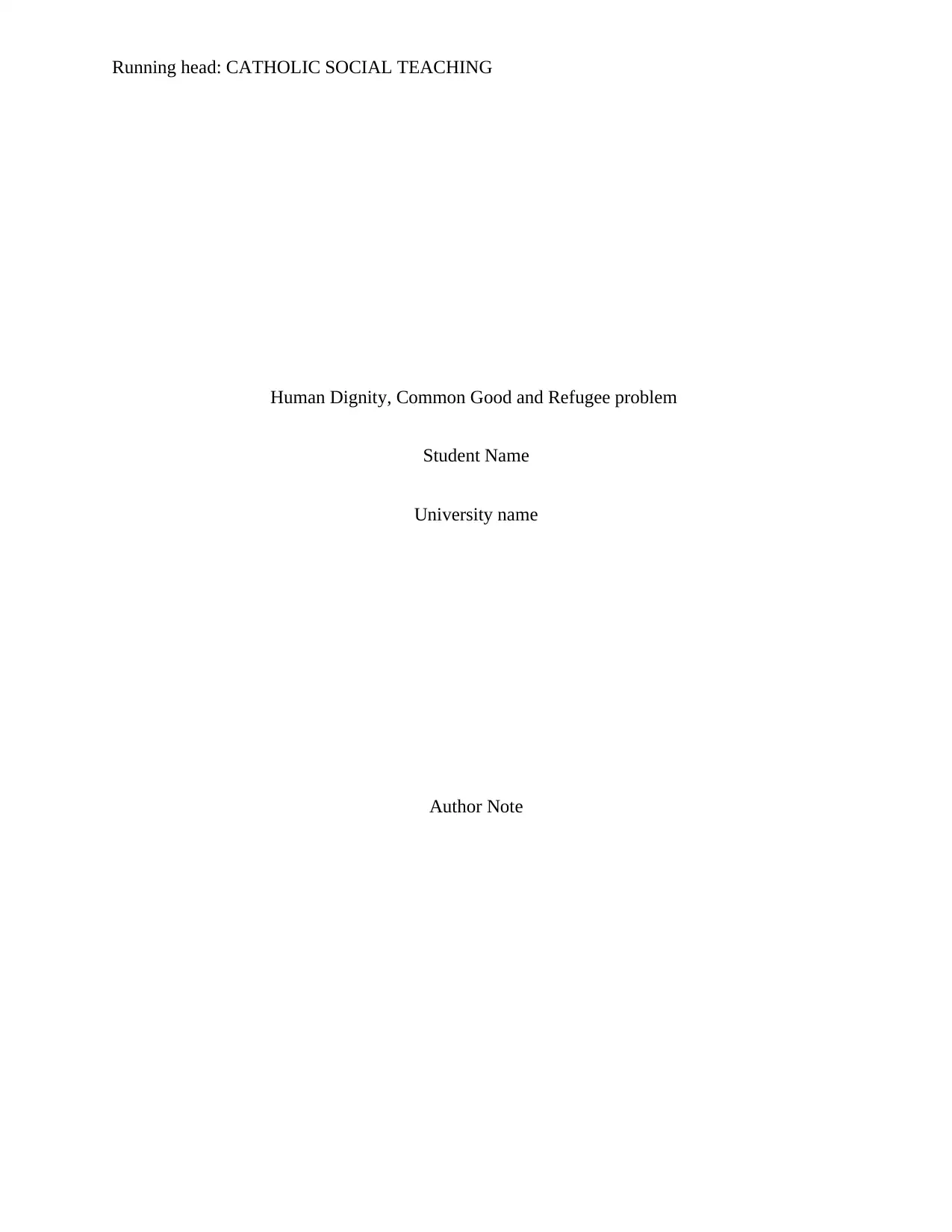
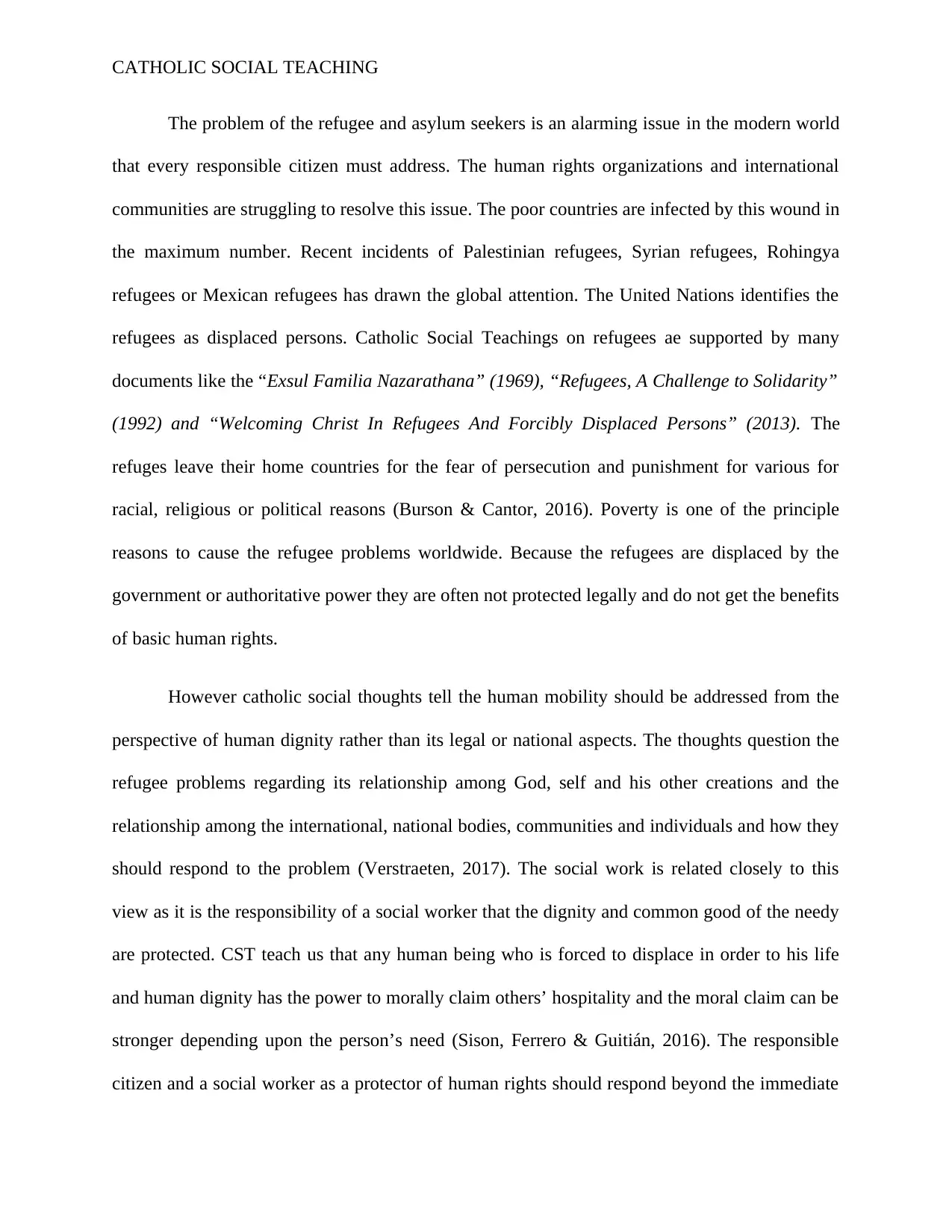
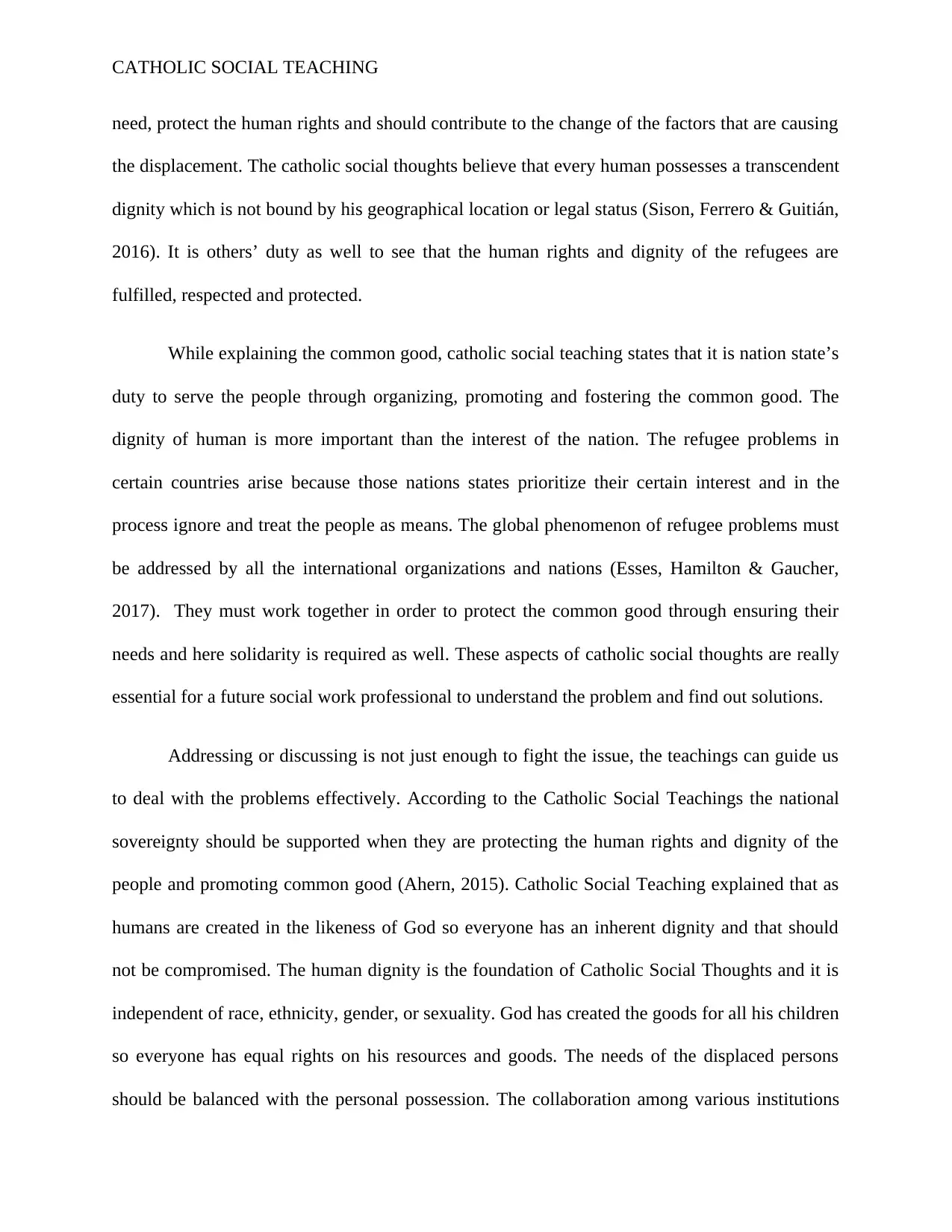

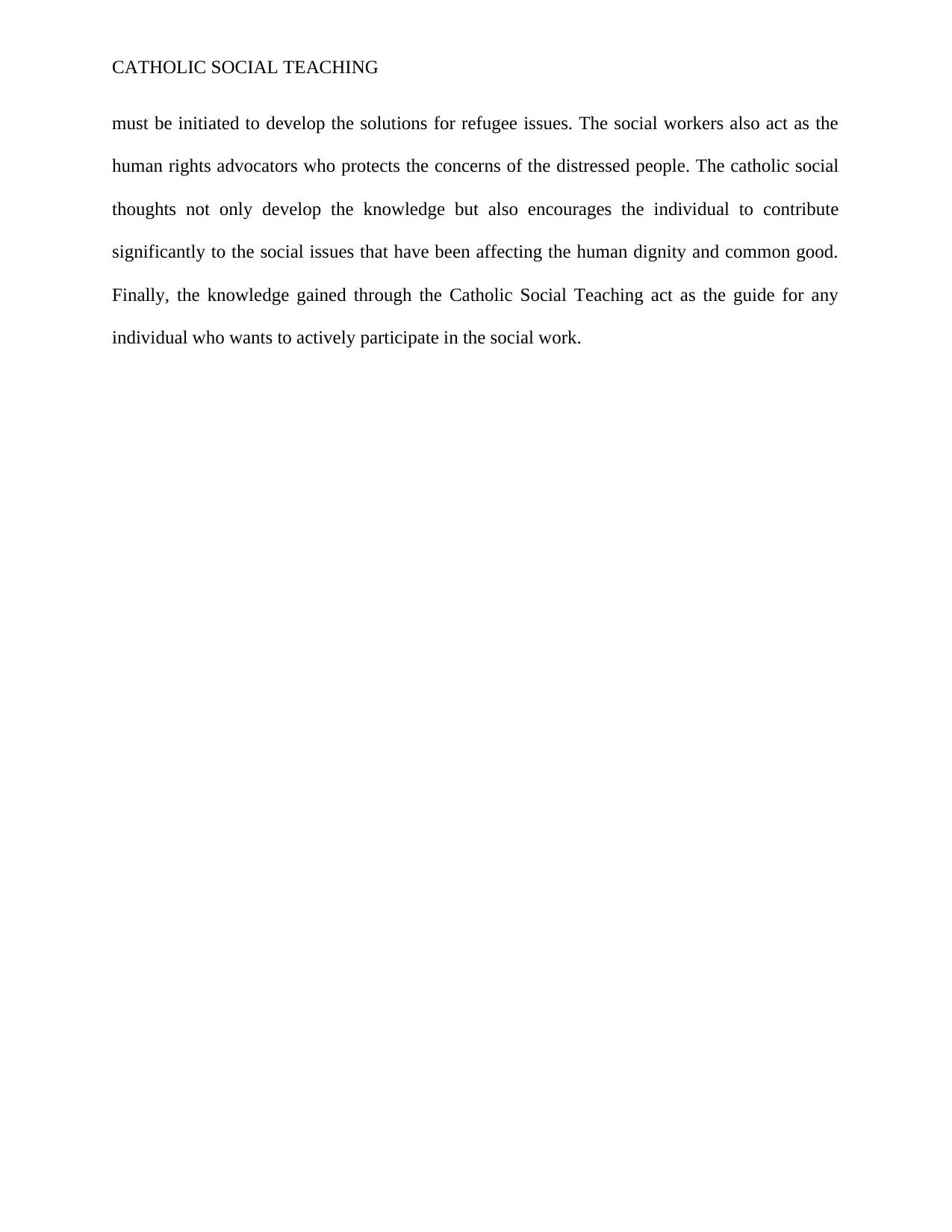
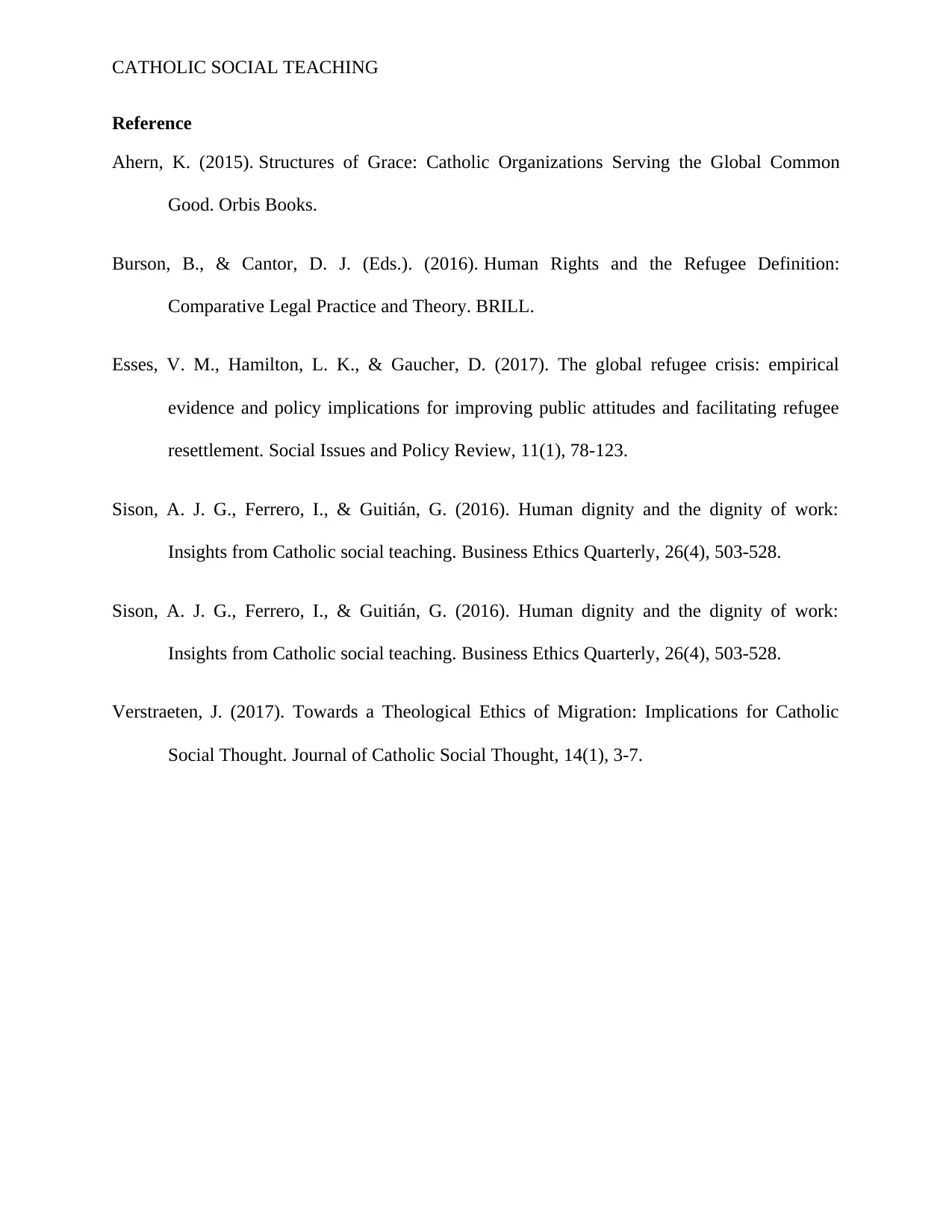






![[object Object]](/_next/static/media/star-bottom.7253800d.svg)